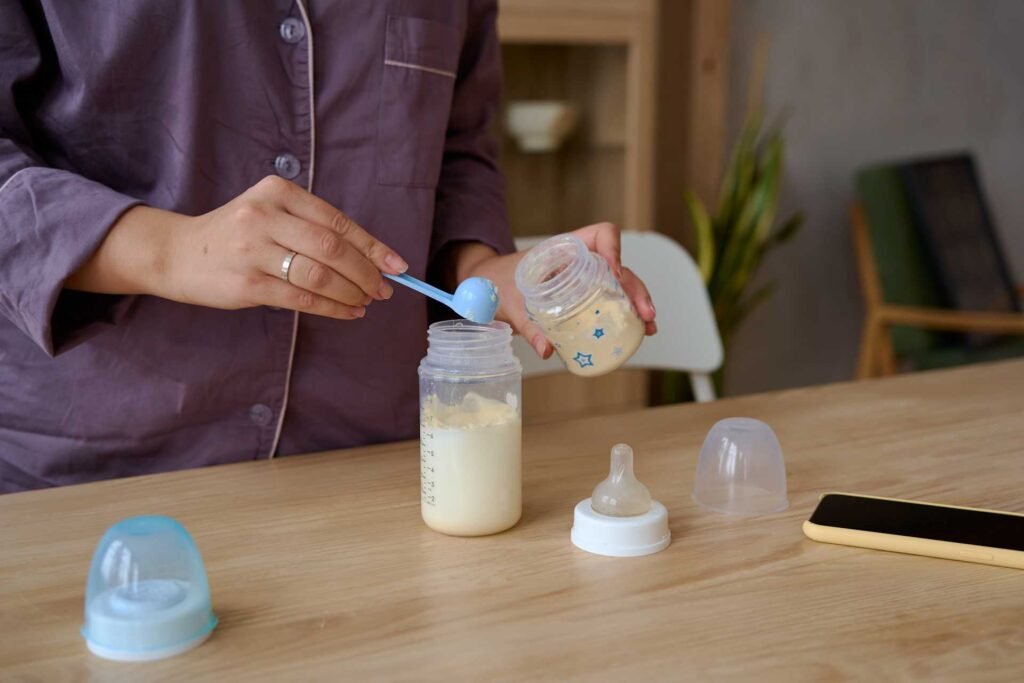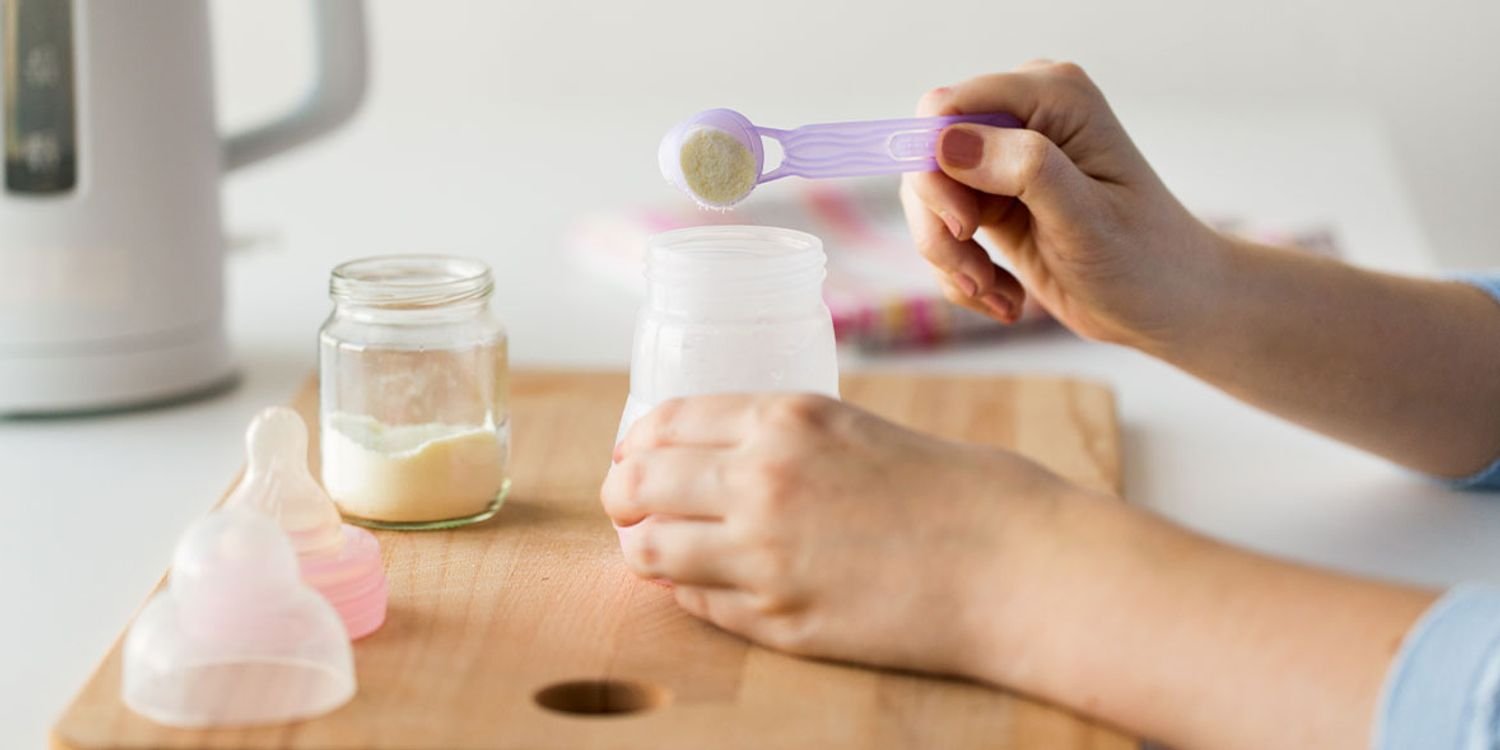Choosing the best baby formula is an important decision for every parent. With so many options available, it can be overwhelming to figure out which one is best for your baby. Whether you’re supplementing breast milk or using formula exclusively, finding the right product ensures your baby’s nutrition and comfort. In this guide, we’ll help you understand how to choose the best baby formula for your little one.
Why Choosing the Best Baby Formula Matters
The best baby formula provides the essential nutrients your baby needs to grow and thrive. It supports their immune system, brain development, and overall health. While breast milk is the ideal source of nutrition, baby formula is a suitable alternative when breastfeeding is not an option. Therefore, choosing the right formula is crucial to ensure your baby gets the best possible start in life.

Key Factors to Consider When Choosing Baby Formula
When it comes to choosing the best baby formula, there are several factors to keep in mind. These factors will help you select a formula that meets your baby’s nutritional needs while also supporting their digestive health.
1. Types of Baby Formula
There are three main types of baby formula: powder, liquid concentrate, and ready-to-feed. Each type has its own benefits, so it’s important to understand them before making a choice.
- Powdered Formula is the most common and cost-effective option. It needs to be mixed with water before feeding your baby. However, it may require more preparation time.
- Liquid Concentrate is easy to prepare since it only requires water to be added. It’s slightly more expensive than powdered formula but more convenient for busy parents.
- Ready-to-Feed Formula is the most convenient option. It comes pre-mixed and is ready to serve. While it’s the most expensive choice, it’s perfect for travel or emergencies.
2. Baby’s Age and Nutritional Needs
As your baby grows, their nutritional needs change. Therefore, it’s important to choose the best baby formula that’s designed for their age. For example, newborns require formula designed for infants up to 6 months, which is rich in nutrients like iron, DHA, and ARA. After 6 months, you may need to switch to a formula that supports their growing body and development.
There are also formulas specifically designed for babies with allergies or sensitivities. These formulas are often lactose-free or hypoallergenic, which can be easier on a baby’s digestive system.
3. Ingredients in Baby Formula
When looking at baby formula options, it’s important to check the ingredients. The best baby formulas contain the necessary nutrients to mimic breast milk as closely as possible. These nutrients include proteins, fats, vitamins, and minerals. The protein in the formula can come from cow’s milk, soy, or other sources, depending on your baby’s needs.
If your baby has any allergies or intolerances, make sure to look for formulas that are free from ingredients like soy, lactose, or dairy. Organic formulas are another great option for parents who prefer natural ingredients.
4. Baby’s Sensitivities
Some babies have sensitive stomachs and may experience discomfort with certain formulas. If your baby is gassy, has reflux, or experiences constipation, you may need a formula that’s specifically designed for sensitive tummies. Many of the best baby formulas for sensitive babies are designed with easy-to-digest proteins or reduced lactose content. These formulas can help your baby feel more comfortable and support their digestion.
5. Brand Reputation and Recommendations
When choosing the best baby formula, it’s helpful to consider brand reputation. Well-known brands often invest in research to create formulas that are safe and effective. Many pediatricians recommend trusted brands with a proven track record of quality and safety. Reading reviews and asking other parents for recommendations can also help guide your decision.
How to Prepare Baby Formula Safely
Once you’ve chosen the best baby formula, it’s important to prepare it correctly to ensure your baby’s safety. Follow these tips to ensure your baby formula is prepared safely:
1. Cleanliness is Key
Always wash your hands thoroughly before preparing the formula. Clean and sterilize the bottles, nipples, and any equipment you’ll be using. This helps prevent bacteria and germs from contaminating the formula.
2. Follow Mixing Instructions
Different formulas have different mixing instructions. Be sure to follow the instructions carefully. Using too much or too little water can lead to incorrect nutrition for your baby.
3. Store Formula Properly
If you have leftover formula, store it in the refrigerator and use it within 24 hours. Do not leave prepared formula at room temperature for longer than 1 hour.
Conclusion: Finding the Best Baby Formula for Your Baby
In conclusion, choosing the best baby formula for your baby involves considering factors like their age, sensitivities, and nutritional needs. Whether you choose powdered, liquid concentrate, or ready-to-feed formula, the key is to find one that supports your baby’s health and comfort. Be sure to check the ingredients, and if your baby has specific needs, consider hypoallergenic or lactose-free options. With careful consideration, you’ll be able to make the best choice for your baby’s nutrition and well-being.











